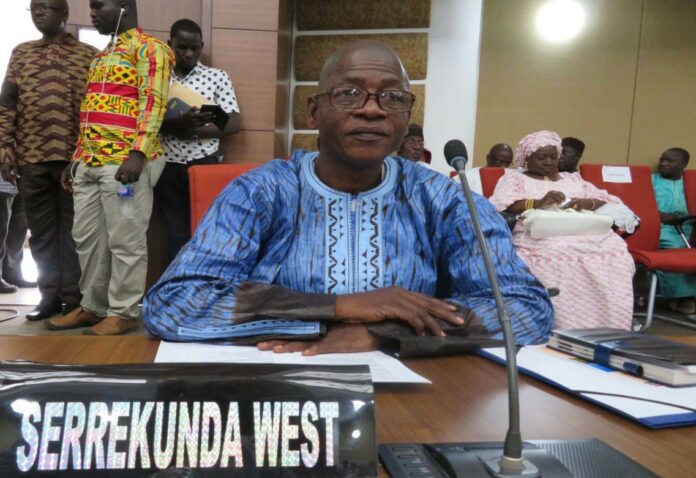By: Dawda Baldeh
Honorable Madi M.K. Ceesay, a National Assembly Member and Chairperson of the Human Rights Committee, shared his perspective on press freedom in The Gambia during an interview with The Fatu Network. He underscored that press freedom extends beyond the sheer number of media outlets or their produced content.
Ceesay urged the government to respond to President Adama Barrow’s remarks, which were perceived as unfavorable to the media and freedom of expression. He argued that efforts by stakeholders, including the Gambia Press Union and civil society organizations, to promote press freedom are gradually eroding.
The parliamentarian drew attention to the stark contrast between the hostile media environment under former President Yahya Jammeh and the current situation. He recalled the hostile environment for the media during Jammeh’s era, characterized by journalist arrests, torture, and disappearances. Incidents such as journalists going missing, attacks on media houses, arrests of media personnel, and physical abuse were common, he noted, emphasizing that little progress has been made.
“What we have gone through during the era of former President Jammeh was a hostile environment for the media where journalists were arrested, tortured and some gone missing after their arrest,” he said.
Ceesay criticized the recent surge in threats, physical attacks, and verbal assaults on the media. He expressed concern over the president calling out journalists as enemies and listing media institutions, describing it as a direct threat against press freedom—an unprecedented occurrence in his journalism career.
“What we have been seeing recently are muscling threats and physical attacks against the media. I’ve never seen in my entire journalism career the president calling out names of journalists and referring to them as his enemies. I’ve never heard the president tag and list media institutions, making remarks that are tantamount to threats against press freedom,” he reacted.
He highlighted President Barrow’s public criticism of journalists and media institutions as a direct threat to press freedom, emphasizing that true press freedom exists when the media can operate without fear or intimidation.
While acknowledging that journalists must adhere to existing laws and face legal consequences for overstepping boundaries, Ceesay argued against tolerating direct attacks on media houses by the President. He urged the government to address these remarks promptly.




